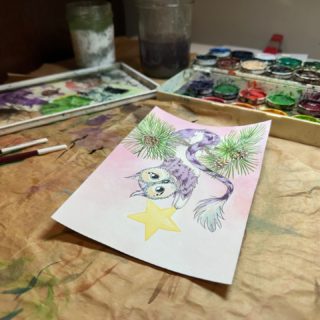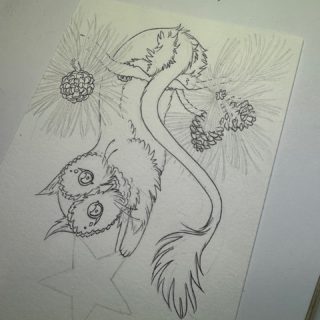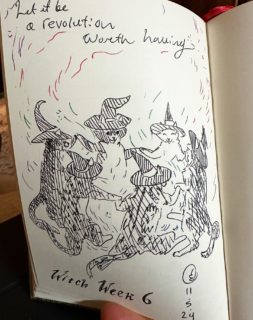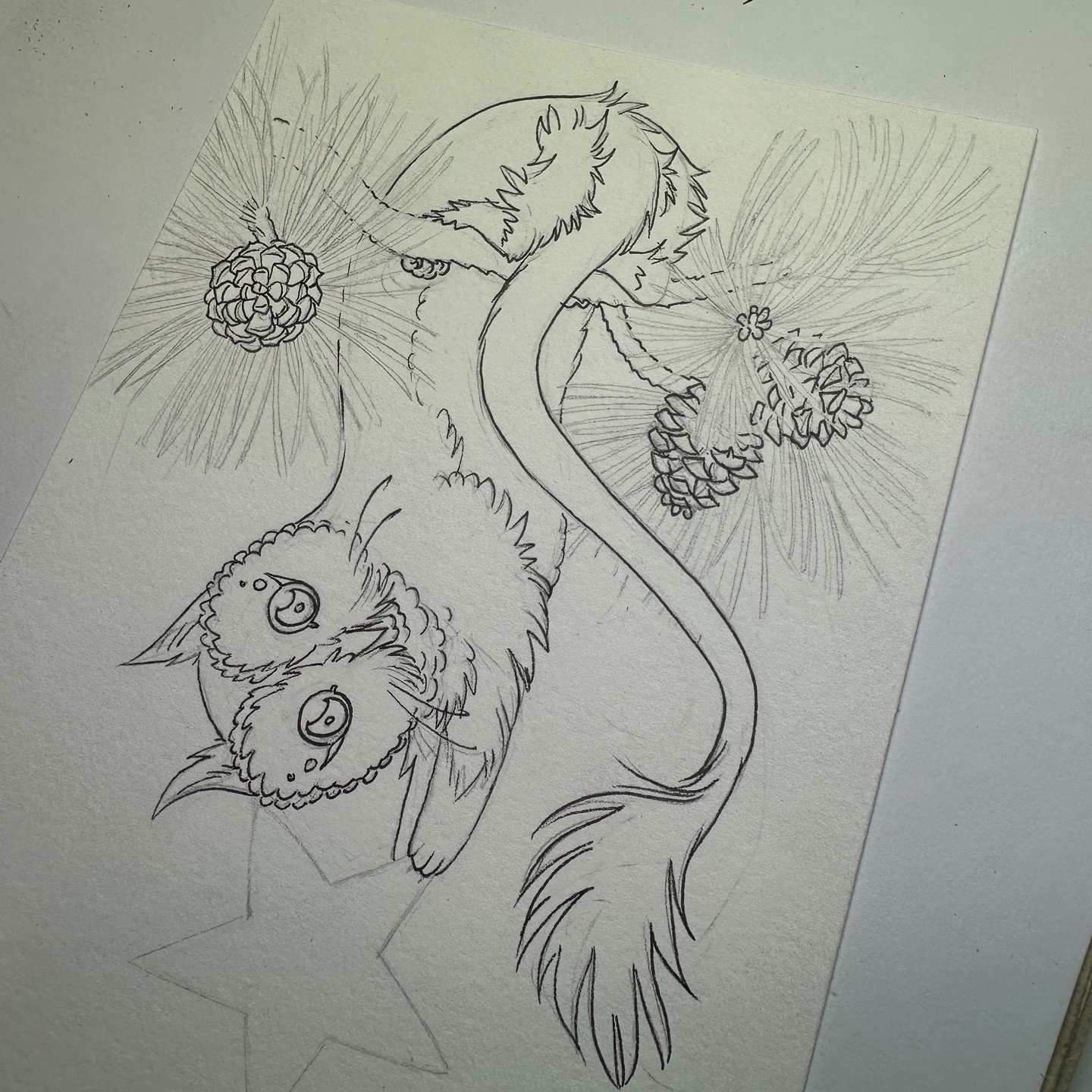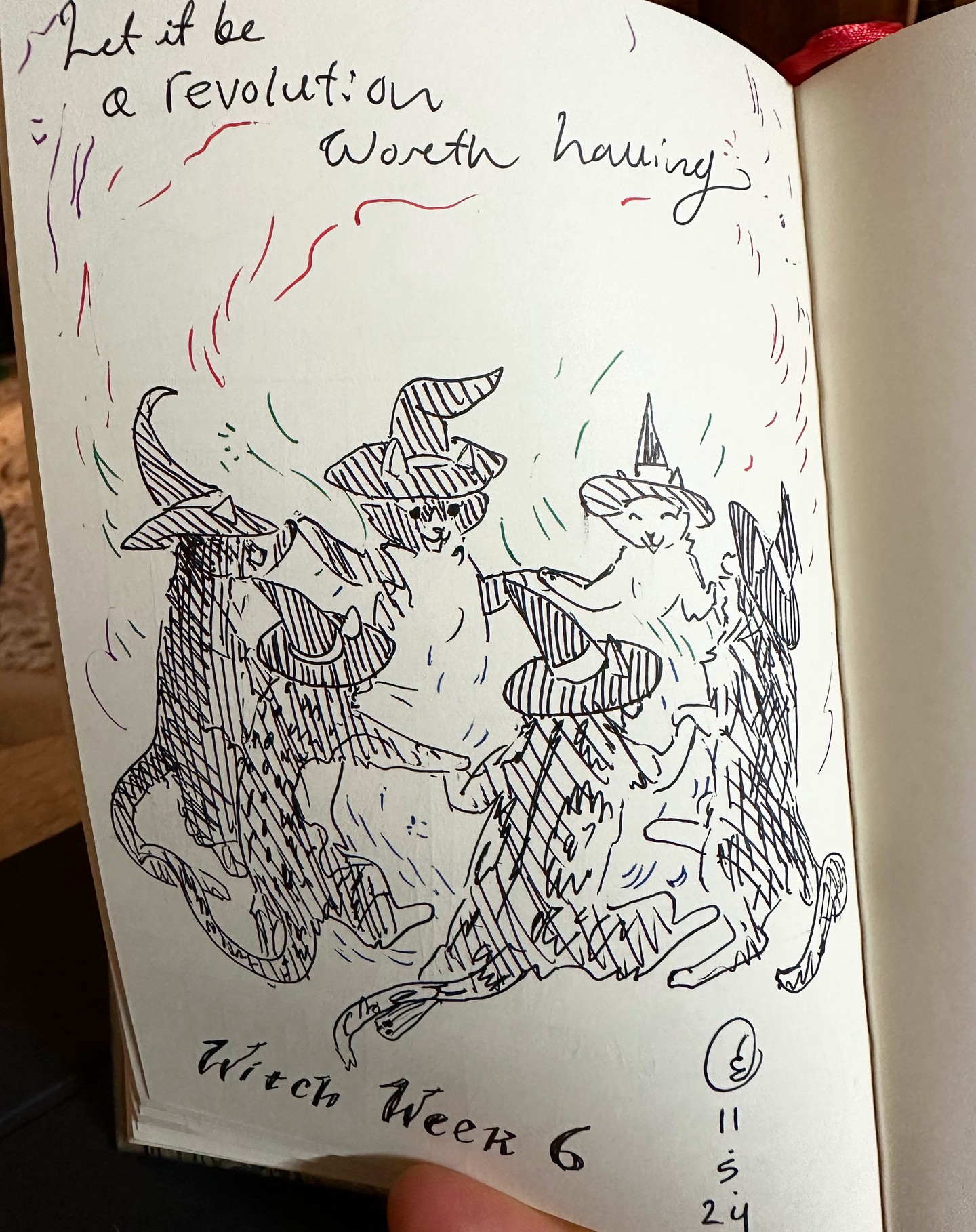One of the questions I get asked most frequently (and sometimes rather impertinently) when people learn of my profession is something along the lines of “how on earth do you make a living at that?”
They don’t always phrase it exactly this way, but this is essentially what they are asking. How do you earn a living writing stories and drawing pictures? Which is actually a little rude, I think. I don’t ask the barista at my favorite coffee shop how much she’s paid per hour, nor do I ask my dentist what his annual income is. Of course, the difference is these are both professions where people have some sort of pre-existing framework for how the people involved earn money: by wages, tips, service fees, etc. Most of the time they are curious about the how of my income, rather than the actual amount of it.
It’s still annoying. Not only because my profession, despite being incredibly rewarding and important, does not pay very well at all, but because there are so much more interesting things to talk to an artist about.
When I was at World Fantasy this year I heard a lot of talk about how people are going about keeping body and soul together in this brave new era of electronic media and crumbling traditional edifices. It is important and relevant that we think about these things, since its difficult to create and publish material when you don’t have enough to eat or a house to live in, but it is also important to remember that life is a transient state, and ultimately the measure of our existence will be taken in the quality of the art we leave behind. In other words, our work, divorced from its capacity as a means to earn money, is worth looking at for its own merits.
Perhaps the most thought-provoking and interesting conversation I had about my writing that weekend took place, not at the hotel or in a conference room, but around the dinner table of my “conservadox” Jewish great-aunt and great-uncle, who invited my Wonderful Mother and I for Sabbath dinner on Friday.
My great-uncle was extremely interested in the kinds of stories I was telling. He’d listened to my “How Riding Got Her Red Hood” short story, and wanted to know if I thought I could use my stories to promote tolerance in the world.
“Intolerance,” he told me, as only an octogenarian Jew can, “is a grave danger to our world. And what you are doing, here, with your work, you have a talent, a power, that not everyone has. And what I hope you keep in mind, moving forward, is how you are using that power.”
Not a single breath was wasted on worrying about how I was going to earn a living while exercising this power. That I would write books, and that these books would find an audience, and be read, was a given, as far as my great-uncle was concerned. He wasn’t interested in the capitalist side of the writing business—only in the creative aspect of it. It was a most enjoyable dinner.
When Ursula K. Le Guin gave her acceptance speech for her National Book Foundation’s Medal for Distinguished Contribution to American Letters she took a more direct approach, but I think she and my great-uncle would get along fabulously. They are both much more concerned with the transcendent quality of modern literature than they are with the money-making aspect of it, which is a refreshing change from the constant barrage of “but how many books have you sold?” sort of questions I usually hear. It is especially encouraging seeing such opinions coming from someone like Le Guin, whom I have admired for years.
While one must admit that a writer needs a certain amount of business acumen simply to navigate the rapids of the publishing river, those skills must ultimately come secondary to our true goal: to produce art that changes the world—for the better. Whether it is by creating tragedies or drama, comedies, comics, fantasy epics or science fiction romances, if you are—to adapt Le Guin’s words—an artist of the imagination; a realist of the larger reality, your ultimate calling should not be the accumulation of wealth or fame, but the creation of transcendent work that will remain, echoing down the ages, long after our flesh and blood and bones have turned to dust, after our homes have been eaten by the jungle (urban or woodland), after the currency we were paid in has lost all meaning, perhaps after even our planet is abandoned.
The best authors, the ones I look up to—Connie Willis, Le Guin, Diana Wynne Jones—have not and do not seem to restrict their writing to what they or their publishers deem profitable. I once heard Willis say, “I just write the books I want to read.” This has certainly been the foundation of every story I have ever written, long before I ever heard Willis speak, and it continues to be the deciding factor in what I choose to write.
In recent years, however, I have augmented this maxim: I will not write what I think will be popular now. I will write what I hope will be enjoyed now. And in ten years. Twenty. Fifty. A hundred. If financial success should come to me in my own lifetime, hurrah! If I am favored with popularity and critical acclaim, fantastic! I shall use it like a trampoline to propel to even greater heights the stories I would be telling anyway.
Because I have been thinking, very hard and for many years, about the power I hold as a teller of stories. And though my ultimate goal—to use those powers for good—is relatively simple, its implementation is complex and variable, and looks to keep me well employed (if not necessarily well paid) for a lifetime that, I hope, should last as long as that of my great-uncle, or Ursula K Le Guin.
*
Goldeen Ogawa is a writer, illustrator and cartoonist. To keep tabs on what she is doing you can follow her on twitter @GrimbyTweets, and on Tumblr. You can also contact her directly.

